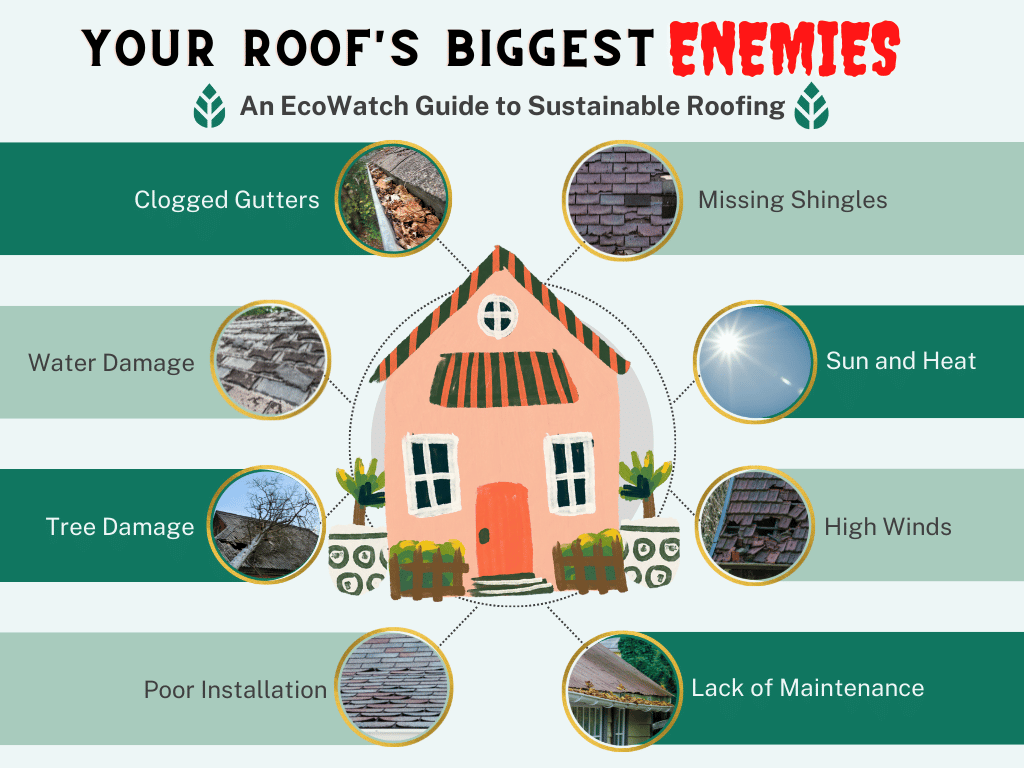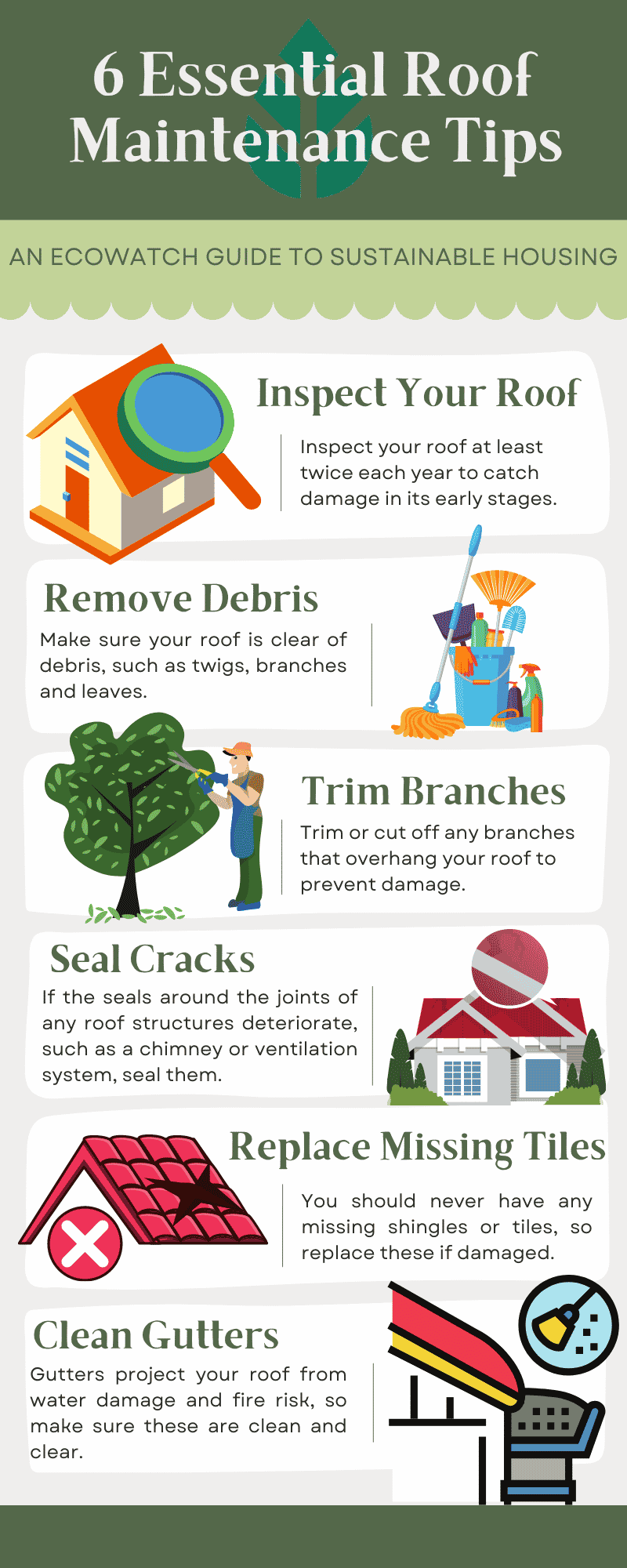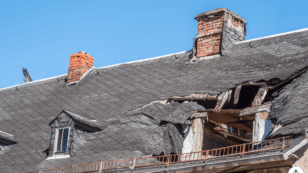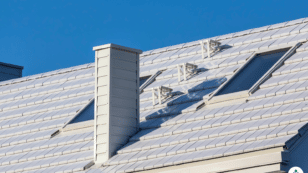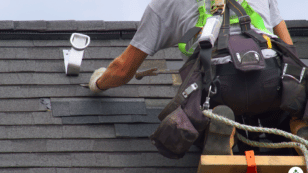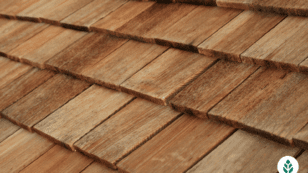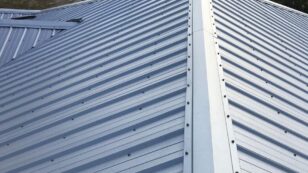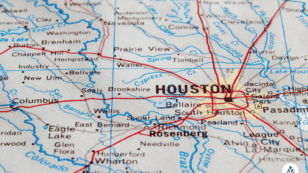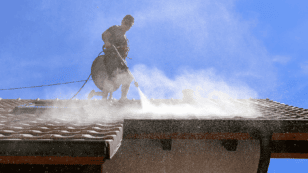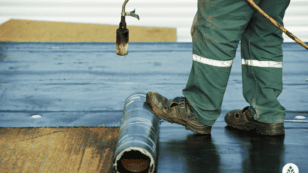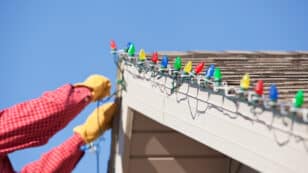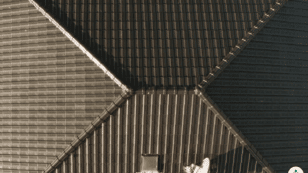
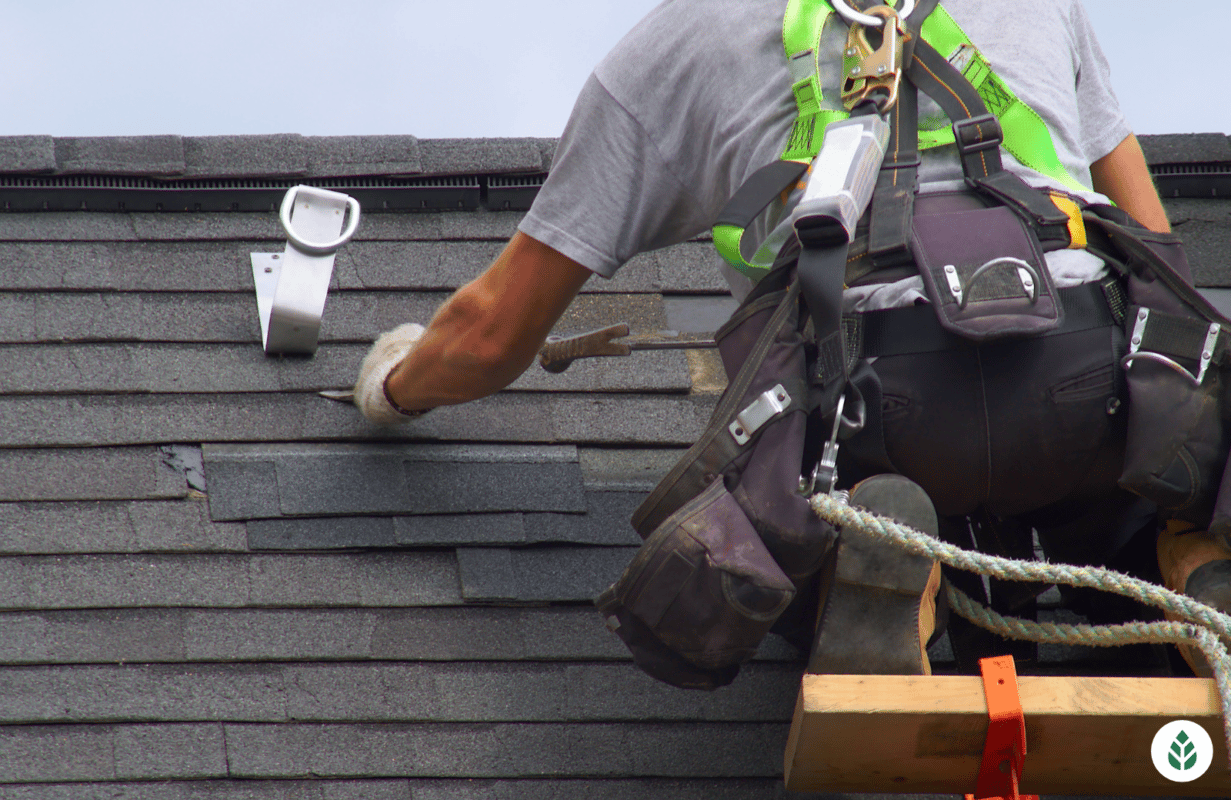
7 Emergency Roof Repair Questions Answered (2024)
Regardless of if you have a brand new roof or are on the verge of a roof replacement, disaster can strike at any time. But what do you do when your roof gets damaged?
Each product and or company featured here has been independently selected by the writer. You can learn more about our review methodology here. If you make a purchase using the links included, we may earn commission.
The key difference between a roof emergency and roof repair is the extent of the damage. As a rule of thumb, any damage that leaves your home vulnerable to the elements is more likely to be a roofing emergency that needs to be remedied as soon as possible. And if there’s water in your home where it shouldn’t be, then you can count on that being an emergency.
7 Questions to ask when you have unexpected roof damage
Cause we know unexpected changes are daunting and unexpected damage to your roof is just about the most inconvenient event to happen. Here are the questions our experts get the most (and the ones that customers should probably ask).
1. How to Assess Roof Damage Safely?
If your roof is damaged during a storm, has collapsed due to a fallen tree or a small leak worsened and led to extensive water damage, then the first step is to take a step back and assess the problem.
Your safety is the most important, and if your home is not safe to be in due to roof damage, the first step is to get your family to safety. Once your loved ones are safe, then you can begin to assess the damage.
2. Are there any DIY Options for Protecting Your Roof if You Need an Emergency Repair?
Roof repairs can be dangerous if you don’t have any roofing or home maintenance experience. If the thought of climbing up a ladder onto your roof to lay a tarp or patch a shingle is too much, then you can absolutely wait for the roofing professionals to do the job for you.
If you feel comfortable, you can take care of small fixes. DIY homeowners can repair missing shingles or tighten any loose shingles. But if you have more severe damage, such as damaged roof flashing, gaping holes or roof rot, then it’s best to leave it to the professionals.
Lay Tarps to Protect Your Home
Water damage from a roof leak is a roof emergency that no homeowner wants to experience. But if you do have a leak, then you’ll want to use tarps to protect your home until a professional can assess your roof. You should place tarps over the damaged area and make sure it is tucked under the roof material or over a ridge to prevent further water damage.

Power Home

Average cost
Pros
- Positive industry reputation
- Lifetime or lengthy warranty
- 10+ years of experience
- Positive customer reviews
- Uses eco-friendly materials
- Well-trained, certified installers
- Variety of roofing styles available
Cons
- Limited variety of roofing materials
- Short or nonexistent warranty
- No financing information available
- Expensive
- Little information available on company website

Erie Home
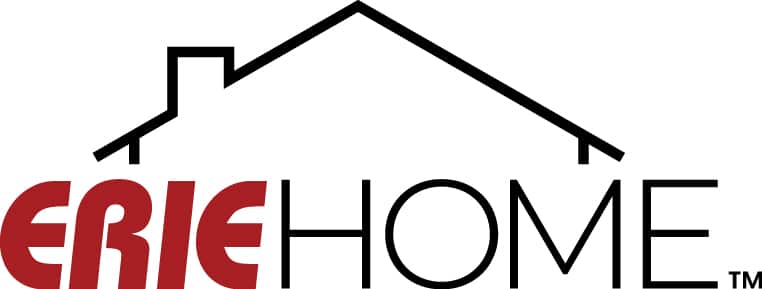
Zero Down - 18 months same as cash with minimum monthly payment
Average cost
Pros
- Lifetime or lengthy warranty
- Widespread availability
- 10+ years of experience
- Positive customer reviews
- Uses eco-friendly materials
- Financing options available
- Well-trained, certified installers
- Uses durable materials meant to last
- Variety of roofing styles available
Cons
- Limited variety of roofing materials
- Expensive

Aspen Contracting

Average cost
Pros
- Positive industry reputation
- Lifetime or lengthy warranty
- Widespread availability
- 10+ years of experience
- Positive customer reviews
- Financing options available
Cons
- Little information available on company website
3. When to Call for Emergency Repair or Schedule an Inspection?
This step may be your next immediate move or may wait until after you have contacted your insurance company. If you have a roof emergency or a leaking roof, then it’s safe to say you can call emergency services.
If you have minor damage, such as hail damage or a few missing shingles, then you can schedule a roof inspection from your local roofing company after you contact your insurance provider.
4. How to Find a Trusted Roofing Company
After you have protected your home against further damage and made a claim with your insurance company, it’s time to find roof repair services. If you already have a good relationship with a roofing company in your area, then that company is a good first phone call to make.
If you need further assistance in your search for roof emergency services, check out our list of reputable roofing companies. Each of these contractors are available to help you with your roofing needs.
5. When to Contact Your Insurance Company
The most important step, other than contacting an emergency roofer, is to call your insurance company. Unless your damage is due to a lack of roof maintenance, your homeowners insurance plan should cover most if not all roof damage.
6.Why Should You Document Roof Damage for Insurance Claims?
Once you are sure your home is safe, you can begin to document the damage. The best way to go about this is to take pictures of all damages, large and small. When you go to make an insurance claim, your insurance company may ask for a written statement and pictures of the damage to corroborate your claim.
When you do contact companies to get repairs done, make sure you keep all the estimates, quotes and bills because your insurance company may need this information to process the claim.
7.Why Should You Review Your Originals Roof’s Warranty?
Most roofs come with two separate warranties: a manufacturer’s material warranty and a workmanship warranty. Typically, neither of these warranties cover damage caused by natural disasters, but it does cover damage caused by poor installation and defective shingles, roof decking or gutters. So, a phone call never hurts to see if you can get financial coverage.
6 Tips to Prevent Future Roof Disasters & Emergencies
Homeowners who work proactively rather than reactively will be in a much better position should disaster strike. As a homeowner, regular roof maintenance and gutter cleaning can make all the difference for your home. With regular maintenance, you can catch smaller problems before they lead to major problems and ensure that your roof is functioning properly.
How to Pay For Emergency Roof Repairs?
After everyone in your home is safe, the first step you need to take is to contact your insurance provider. Most home insurance companies will cover the cost to repair roof damage caused by acts of nature, such as storm damage, or fire damage. Your insurance company may also have recommendations for roof repair companies.
If you have taken out a home warranty and opted in for add-ons, there is also a chance that your plan covers roof repairs. Even if you are unsure, it may be worth it to contact your warranty company to see if any home damage is covered.
Connecting with an Emergency Roofer
If you have experienced some sort of natural disaster or minor roof problems that got out of hand, then it’s time to connect with a local emergency roofer. Reputable roofers can be hard to come by, but our recommended roofing contractors can help fix your roof quickly and hassle-free.

 233k
233k  41k
41k  Subscribe
Subscribe 
